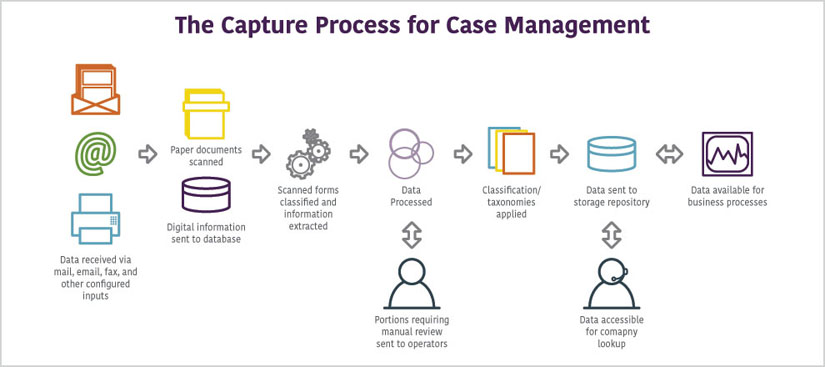
Effective Role Of Case Management for Homeless People

Introduction to case management
Before we begin to completely understand case management’s effectiveness in the lives of homeless people, we will first have to understand what case management truly means in the general context.
Hence, first, we will explore what case management means. We will also discuss how case management can be carried out through specialized software and how it can impact homeless people’s lives.
What is case management?
Case management is a process by which we strive to achieve a particular goal by taking care of cases and projects from the beginning to the end under a case manager’s coordination. It might involve a large number of teams or one team with a lot of members.

Why is case management important?
Case management is important in every industry because it facilitates the achievement of the concerned client’s wellness and autonomy through aspects like planning, assessment, communication, advocacy, education, resource management, and service facilitation.
Case management is also dependent on the client’s needs and values and works in collaboration with all service providers. The case manager’s responsibility is to link clients with appropriate providers and resources throughout the entire process. It is also a requirement in the industries of human services and care settings.
The case manager has to take care of all that while ensuring that the care provided is safe, effective, client-centered, and timely, efficient, and equitable for the client. It is ensured because it is the presence and mutual collaboration of these aspects that bring value to the client in the end.
The ideal case manager makes sure that these objectives are achieved with every client they handle:
- Ensuring appropriate care
- Helping clients move between care settings seamlessly
- Using education to empower clients
- Coordinating care services
- Helping clients identify their issues well and set goals to achieve them
What is case management for homeless persons?
Case management is a collaborative and systematic approach to ensuring that a homeless person gets the services and support they need to move on with their lives and healthily lead them. This kind of case management was first seen in the mental health and addictions sector. However, the strategies employed and the tools used here can be applied to various industries and a vast arena of people who suffer from homelessness.
Case management for homeless persons is a comprehensive and strategic form of providing specific services to homeless people. Here, case managers and workers assess and analyze the client (in this case, the homeless person) and figure out where appropriate arrangements, coordinations, and organizations can be called upon to help them. Access to various social programs and services is also ensured to a lot of people. These services are chosen from a client-to-client or case-to-case basis to meet the individual’s needs fully.
Case management for homeless persons is a completely client-centered process. It ensures that the homeless person has a major say in the kind of services or programs they have access to. It helps in bringing out the concept of shared accountability between the caseworkers and the client themselves.
Objective of case management
The ultimate objective of case management for homeless persons is to empower them and make them able to draw on their strengths when and as required. Case management can also help people make sure that they have an improved quality of life by facilitating access to necessary support systems to reduce the risk of future homelessness or any other related potential outcomes.
Case management for homeless persons is strongly connected to the industries that deal with social work and health care. Hence, just like in any other industry, they too have different approaches to different practices. Case management can be both short or long-term. The type of case management implementation depends on the client’s need for the caseworkers or the case manager.
Here are the six key dimensions of case management for homeless persons.
Key dimensions of case management for homeless persons
Here they are:
- Cooperation and collaboration – the involvement of several people with different backgrounds, a genuine team approach towards solving problems and creating resolutions, the definition and demarcation of skills and areas of expertise
- Correct service matching – client-centered service matching that is completely and entirely based on the complexity of the need of the client
- Contextual case management – interventions to take necessary and appropriate care of different client elements like age, ability, culture, gender, and sexual orientation. Additionally, a broader understanding of the variety of structural factors that shape a person like a history of violence or sexual abuse or assault
- Correct engagement – the building of a strong relationship that has its foundations in respectful encounters, listening skills, openness, and non-judgemental attitudes
- Well-managed and coordinated systems – Integration of the intervention of the case into the broader system of care
- Evaluation for success – The consistent and continuous analysis of case-managed supports to gather data for future endeavors
What are the three keys to effective homeless care management?
The fight against homelessness is becoming more and more difficult. There are organizations and social service associations that recognize the importance and requirement of effective case management in their organizations. It is a tool they have realized that can make everyday life easy for them.
Here are the three keys to effective homeless care management.
1. Employment of evidence-based models of homeless care management – The evidence-based models are:
- Standard community care models
- Intensive, comprehensive care models
- Rehabilitation-oriented community care models
- Prioritizing professional development – The professional development system should include the following:
- Standardized performance measures
- Training
- Support and supervision
2. Regular tracking and analyses of outcomes – Coordination, evaluation, and accountability. In the end, the homeless case management is founded on the broad understanding that holistic and coordinated services are much more effective at addressing both surface and underlying needs of homeless people.
The evaluation and engagement that comes with partnering with other agencies are very important to the efficient and effective working of the case management for homeless persons. The more the agencies work and collaborate, the more they hold each other accountable for each other’s actions. The more they can utilize their resources smartly and truly serve their community to the best of their ability.
Wrapping Up
Case management approaches are truly helpful to people who are trying to improve their lives proactively. The important factors, however, which make a case management process effective are listed below:
- Delivery intensity
- The number and type of caseloads
- Hospital vs. community programs
- Varying levels of participant needs
We would require a lot of research to fully understand the methods in which we can continue to obtain the increased health benefits from case management for homeless persons. However, it was seen that case management methods that are already functional are making a significant difference in the lives of people.















